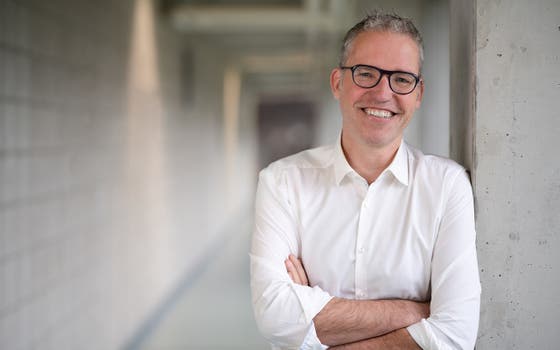Preventive health: urgent and impactful for all researchers
Preventive health: urgent and impactful for all researchers

Healthcare is under pressure: costs are rising and the quality of care is under threat. Major crises are coming to the fore, such as climate change, which have significant consequences on the population’s health. Roel Vermeulen, Professor of Environmental Epidemiology and Exposome Science (UU) warns, "It's five to twelve. More attention to preventive health can help reduce the pressure on the front end, but this requires proven, effective solutions. I call on researchers to play their part." Together with TU/e, WUR and UMC Utrecht, UU has laid a solid foundation for research on preventive health in the EWUU Alliance. Vermeulen, a member of the EWUU Preventive Health Steering Committee, explored this further at a conference on 19 April.
Why this collaboration on preventive health?
The pressure on healthcare is one of the biggest societal challenges we face. Costs are soaring and soon it will require one in four people to work in healthcare to continue to provide quality care. Life expectancy has increased tremendously due to developments, vaccinations, improved hygiene and increased prosperity for example. The question now arises: how to address diseases of affluence effectively, such as obesity? There is much to be gained by concentrating more on prevention.
Preventive measures are only effective if we intervene on multiple fronts simultaneously. Encouraging a healthy lifestyle is important, but it is most effective if accompanied by policies for a healthy living environment, such as the provision of nutritious food in the local environment and sufficient space for exercise. In short, the whole system needs to be considered.
UU therefore collaborates with TU/e, WUR and UMC Utrecht with a multidisciplinary approach to solutions for preventive health. This is done through the EWUU alliance Institute 4 Preventive Health (i4PH) initiative. UU contributes broad knowledge on social, governance and environmental aspects, TU/e on technologies, WUR on healthy lifestyle and environment and UMC Utrecht on healthcare.
How does the i4PH work?
Step one: ensure that the right parties find one other. We connect experts, both within the four institutes and the outside world, and we witness how effective this is. We have brought together all partners from across the prevention chain through the National Growth Fund application PreventiePromotor for example. See also the projects for which we provided seed money, each of which involves at least three of the four institutes.
Step two: learning to speak one another’s language. We organize various initiatives such as round-table discussions, Lunch & Learn meetings and conferences. Experts converse and try to understand each other better. Discussions include what do we mean by terms such as ‘care in the right place’, ‘a healthy living environment and a ‘digital twin’?
Both steps are preconditions for working on preventive solutions. Simply bringing these relevant parties and this knowledge round the same table makes strides before even having started new research. All experts have building blocks in their toolbox after all. Bringing these building blocks together enables us to create structures that we did not previously think possible. This is the strength of our work.
These steps mean that we have laid solid foundations and many (seed) projects are in the pipeline. The time is ripe to tap into larger grant pots and implement our research on a larger scale.
What does the i4PH want to achieve?
Our research must lead to experiments and actual change in practice, or in other words ensuring that everyone has the best quality of life possible, whether they have a medical condition or not.
Reducing diseases of affluence is high on the I4PH research agenda, but also 'how to ensure and reverse the increasing health disparities between different socioeconomic groups' must be considered. We are now witnessing the consequences of both of these problems. We also need to zoom out and pay attention to the concept of planetary health. Major crises such as climate change, will also affect our health. Think of food production challenges and the increasing cost of healthy food or heat stress for example. We need to ensure that we are prepared for all such challenges.
How can researchers contribute?
By developing evidence-based solutions for preventive health. There is a real societal-need for this, but it is also an interesting field in itself and such solutions will bring about real-world change. Please share your building blocks and find out how they can add (even more) value. The i4PH initiative wants to assist, not only by facilitating the sharing of ideas and providing seed funding, but also by identifying opportunities together with researchers and external partners.
Annual Congress EWUU Alliance(APRIL 19, 2023)
You can watch the full registration of our conference Crossing boundaries for a healthy and sustainable future or parts of the plenary programme here. below.

